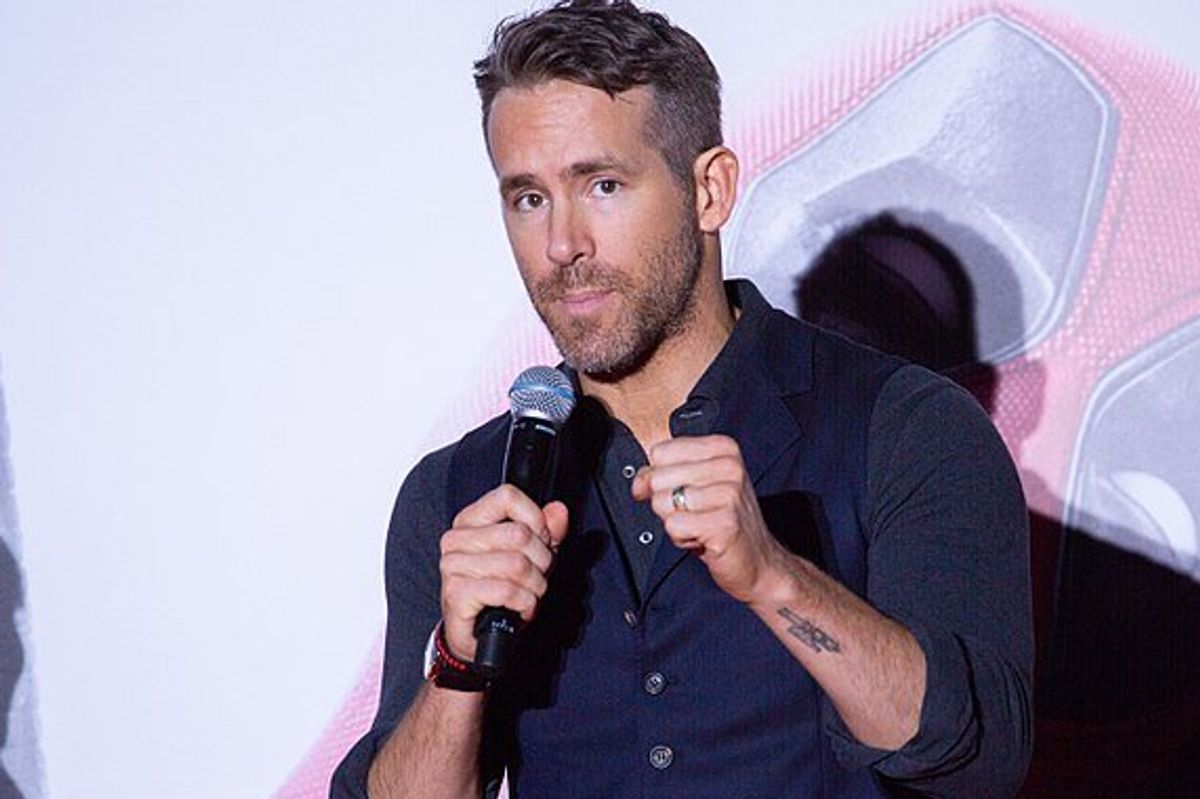The unexpected reason why having kids made Ryan Reynolds 'love' his anxiety
“Now I love that I have anxiety."

Ryan Reynolds at the "Deadpool 2" premiere in Japan.
“Deadpool” star Ryan Reynolds shared a fascinating take on anxiety and parenting in an interview he did with Hugh Jackman for PEOPLE. He believes that instead of making it harder to be a parent, it’s made him more compassionate and present in the lives of his children.
Reynolds and actor Blake Lively have 4 children: James, 9, Inez, 7, and Betty, 4. They welcomed a fourth child in 2023, whose name and gender haven’t been revealed. Back in 2022, he told CBS News he had struggled with anxiety “my whole life.”
“Oh mate, you’ve been pretty open with your anxiety struggles, which I really applaud you for,” Jackman told Reynolds in the PEOPLE interview. “Do you find being a dad makes it better or worse?”
Reynolds said it makes him a better parent because he can relate to their anxious moments and respond compassionately.
“Now I love that I have anxiety, I love that I’ve had anxiety,” Reynolds said. “Because when I see my kids experiencing some of that—which is probably genetic—I know how to address it in a way that is compassionate, that actually allows them to feel seen in that anxiety. I know that I can’t just fix it. And I can communicate all that stuff to them and with them. So, I’m always kinda grateful for it.”
Ryan Reynolds & Hugh Jackman Interview Each Other | PEOPLEyoutu.be
He also said that parents need to share not just their wins but also their losses in life.
“I think Sean Levy actually told me something that stuck with me forever; its that people only talk about their wins, but I think it's really important for your kids in particular to know that you lose,” he shared. “You don’t get what you want all the time; something you worked on really hard didn’t work; you said something embarrassing today; you did something that didn’t sit right with you. It’s so important that they see that and they don’t just hear about ‘Oh dad nailed it,’ because you lose so much more than you win.”
For Reynolds, parenting is all about teaching through example.
"Part of it is that I have three daughters at home and part of my job as a parent is to model behaviors and model what it's like to be sad and model what it's like to be anxious or angry. That there's space for all these things," he told PEOPLE in 2021. "The home that I grew in, that wasn't modeled for me really. And that's not to say that my parents were neglectful, but they come from a different generation."
Back in 2023, Reynolds talked publicly about his struggles with anxiety, saying that now and then, he feels like he’s spinning “out of control.” He added that he uses meditation to “take time” for himself.
Reynolds’ story shows that even though he has anxiety, he's turned it into a positive by using his struggles to enrich the lives of others. The pain of anxiety has taught him a valuable lesson in compassion that he can pass on to his children.
- Ryan Reynolds once took a toddler-focused CPR class and ended up saving his nephew's life ›
- Ryan Reynolds filmed his colonoscopy after losing a bet—it turned out to be 'lifesaving' ›
- Ryan Reynolds revealed how intense his anxiety can be. Here's how he manages it. ›
- Brain hack can help you resist any temptation - Upworthy ›







 A woman is getting angry at her coworker.via
A woman is getting angry at her coworker.via  A man with tape over his mouth.via
A man with tape over his mouth.via  A husband is angry with his wife. via
A husband is angry with his wife. via 
 Curling requires more athleticism than it first appears.
Curling requires more athleticism than it first appears.
 When you meet someone in Japan for the first time, you say "hajimemashite," which literally translates as "first time."
When you meet someone in Japan for the first time, you say "hajimemashite," which literally translates as "first time." Sharing your age in Japan involves a whole other way of measuring time.
Sharing your age in Japan involves a whole other way of measuring time.

 Comfort in a hug: a shared moment of empathy and support.
Comfort in a hug: a shared moment of empathy and support. A comforting hug during an emotional moment.
A comforting hug during an emotional moment. Woman seated against brick wall, covering ears with hands.
Woman seated against brick wall, covering ears with hands.